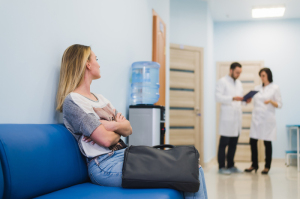by
Lauren Dubinsky, Senior Reporter | December 08, 2017

High breast density isn't enough
A new study published in the Journal of General Internal Medicine found that community practices are not abiding by MR breast cancer screening guidelines.
"Providers do not always recognize when women meet criteria for high breast cancer risk and should be referred for related services," Deirdre A. Hill, lead author of the study, told HCB News.
Breast cancer remains the most common cancer among women regardless of race or ethnicity, according to the Centers for Disease Control and Prevention.



Ad Statistics
Times Displayed: 173722
Times Visited: 3172 For those who need to move fast and expand clinical capabilities -- and would love new equipment -- the uCT 550 Advance offers a new fully configured 80-slice CT in up to 2 weeks with routine maintenance and parts and Software Upgrades for Life™ included.
The guidelines, which are backed by the American Cancer Society, American College of Radiology and Society of Breast Imaging, were introduced in 2007. They recommend MR exams for women who have a 20 percent or higher chance of developing breast cancer.
For the study, a team at the University of New Mexico School of Medicine used data from the Breast Cancer Surveillance Consortium. That included 348,955 women in given regional BCSC regional registries who underwent mammograms and 1,499 who also received MR exams.
The researchers considered each woman's chance of receiving an MR exam, along with factors including her family history of breast cancer and other risk factors.
They found that about 83 percent of screening MR exams were performed on women who did not meet the professional guidelines. Among those women, 35.5 percent were in the low- to average-risk group.
On the other hand, only a small amount of the women who met the professional guidelines received MR exams.
The research team hypothesized that physicians had women with high breast density, breast atypia or abnormal cell growth undergo MR exams even though their lifetime risk was less than 20 percent based on family history.
Hill noted that the ACS defines "high risk" patients as those with a 20 percent lifetime risk of breast cancer, but women with high breast density have a 15 percent lifetime risk, at most.

